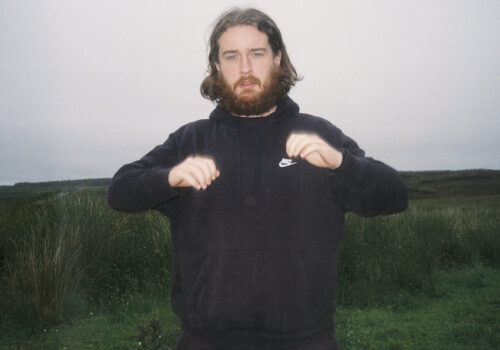How a tweet from James Vincent McMorrow led to a conversation about perception
Words: Dylan Murphy
Photography: George Voronov
Words: Dylan Murphy
Photography: George Voronov
For November’s cover story Dylan Murphy spoke to James Vincent McMorrow. Following a back and forth on Twitter, the pair took to zoom to discuss being tethered by perception and finding joy in shared understanding.
By now everyone should know that heading to Twitter for meaningful conversation is like going to McDonald’s for a salad – It’s pointless. The social media platform is social commentary’s answer to fast food. While it satisfies a short-lived hunger for a quick dopamine fix it nearly always results in an undercooked end product.
Analogies aside, growing an online persona is more lucrative than ever and if you can control the narrative then your hot takes and interactions with fans will be handsomely rewarded by the platform. Careers are frequently built off a ubiquitous social media presence and it makes sense. Who doesn’t love the ability to be able to interact in an instance with their favourite artists?
Moreover, with socialising largely being limited to the internet in the midst of a pandemic these interactions are becoming increasingly common.
For lack of a better phrase, the vibes have not been immaculate on the timeline this year. So it was refreshing that an interaction that had the potential for conflict led to a deeper and more meaningful conversation.
Considering the mere thought of Twitter beef can have a near paralysing effect on me, the notification from James had me preparing for the worst. The platform tacitly encourages confrontational behaviour with the promise of likes and retweets. Subsequently, sometimes it can feel like the conversation around music online has been reduced to one-liners and I’m by no means innocent in that respect. So with that in mind, his response and willingness to have a bigger conversation about music was refreshing. Fast forward a couple of weeks and we finally had the chance to talk in more than 280 characters about music.
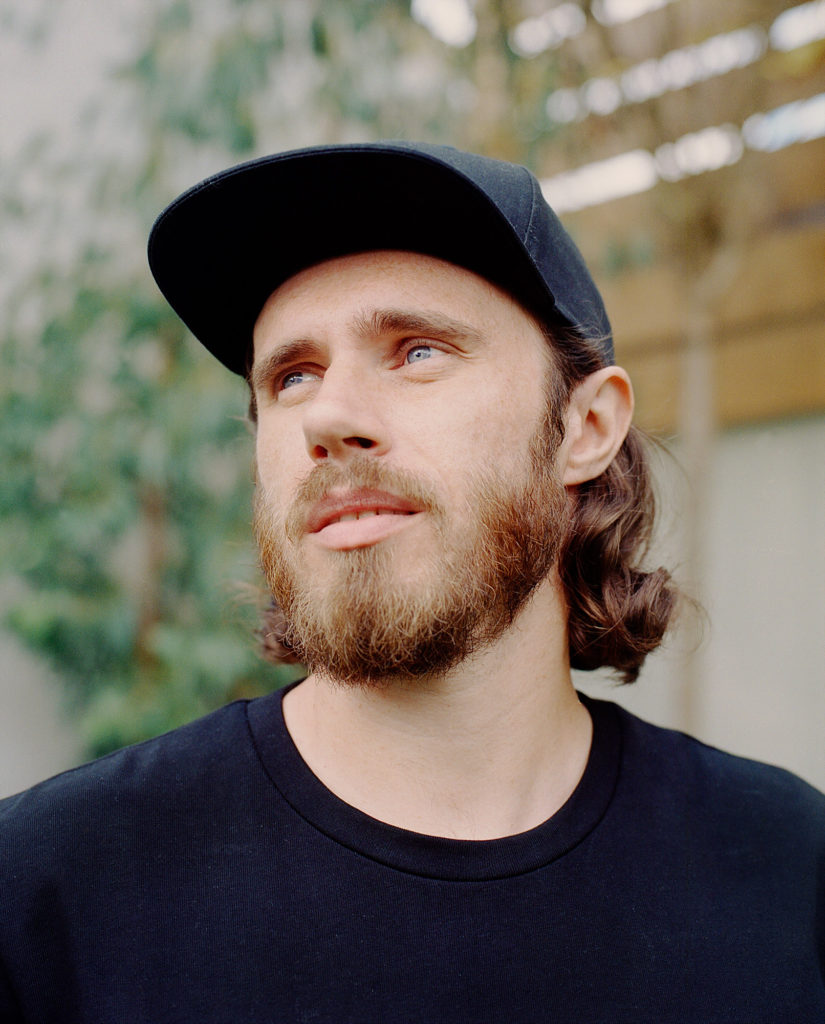
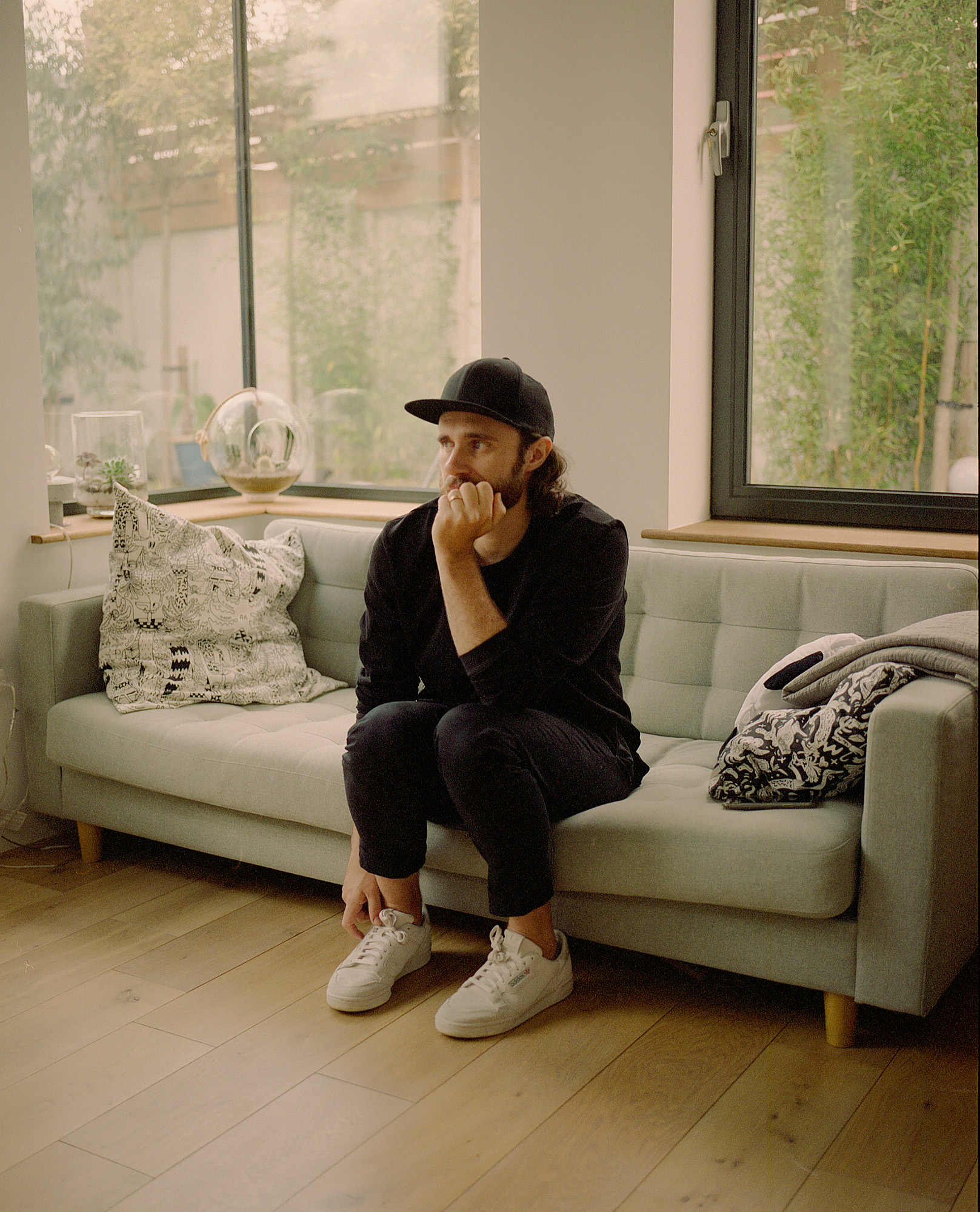
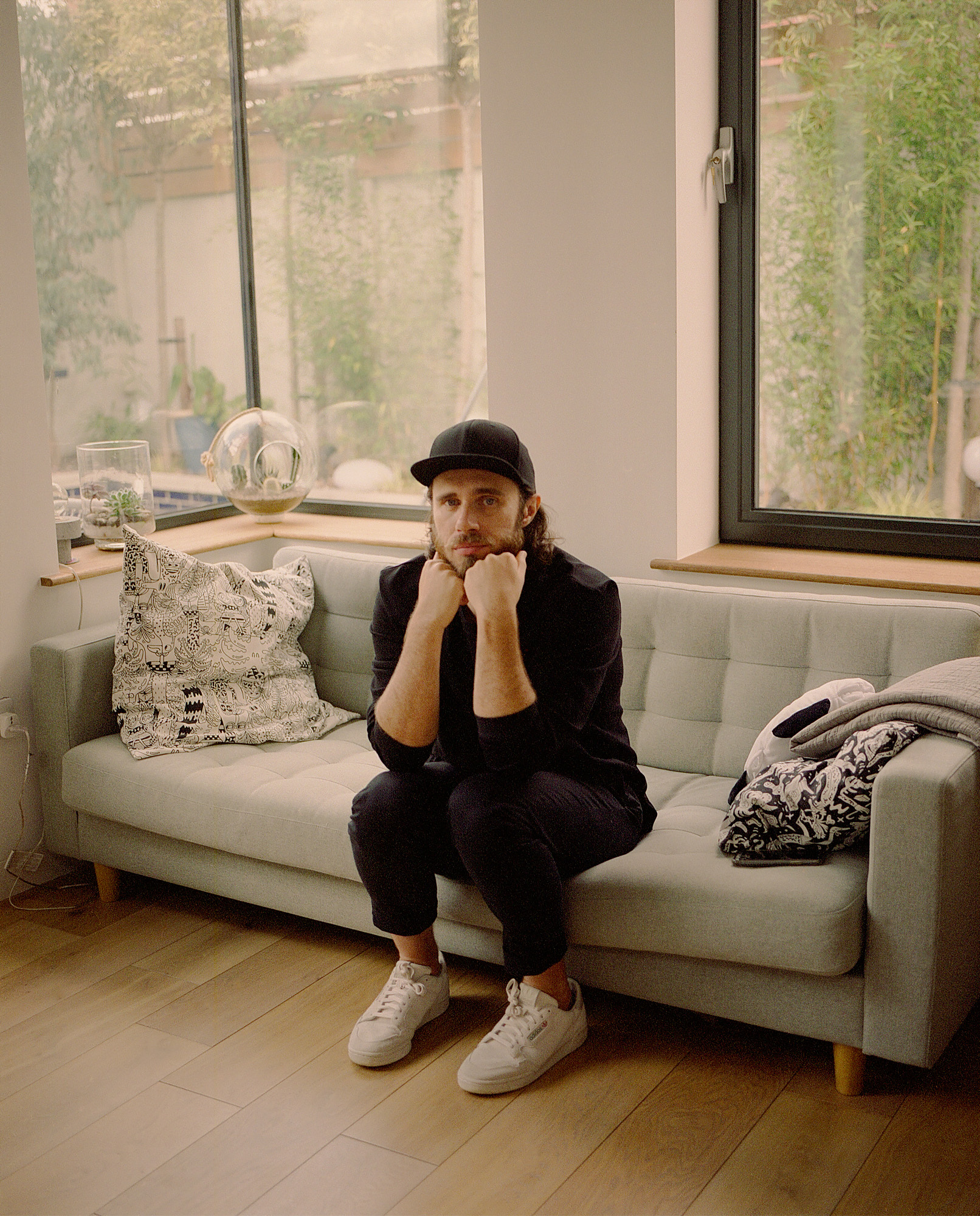
Fresh back from a run in Phoenix Park and wiping the sweat from underneath his beanie James sits in his car to cool off whilst he speaks to me. Inevitably we lament the government’s inadequate support for musicians and the arts whilst gigs are a no go.
“We are very honest so we get kicked to the bottom of the queue. It’s a hard feeling to take” he sighs.
Amidst the chaos in the world, James is gearing up to release another album, his first since 2017’s True Care. Feeding my curiosity about the relative silence in the years since its release he straightens his posture and explains.
“I just wanted to live life. I’ve been obsessed with forward motion for the majority of my career and I still am”, he explains from his parked car – which feels like an allegory for his tale.
“I can’t sing about shit if I don’t actually do stuff. I know that sounds really simplistic but since 2011 when things started moving for me I went straight from that album into the next album, into the next, into the next… I’ve never stopped for a moment. It sort of coincided with the end of a tour and I have a daughter who is two and that was something I was thinking about.”
“I wanted to be a human being and a rounded personality. I don’t want to be this driven engine that’s only focused on the studio. I like the idea of progress and change and evolution and it doesn’t happen without making those changes. If you just keep going and expect a different result you are just an idiot.”
“I just took a step back and I said I’ll see what happens. But honestly, it was the best 2 years of my life”, he says beaming as the sun casts his silhouette against the back seats.
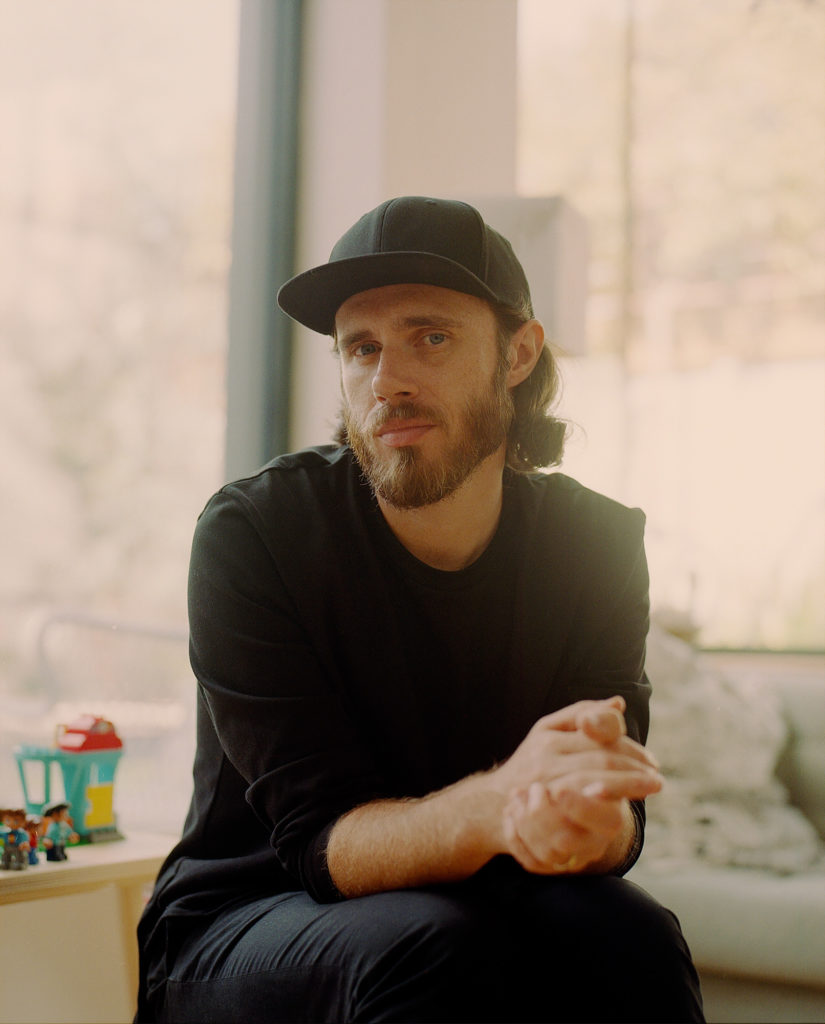
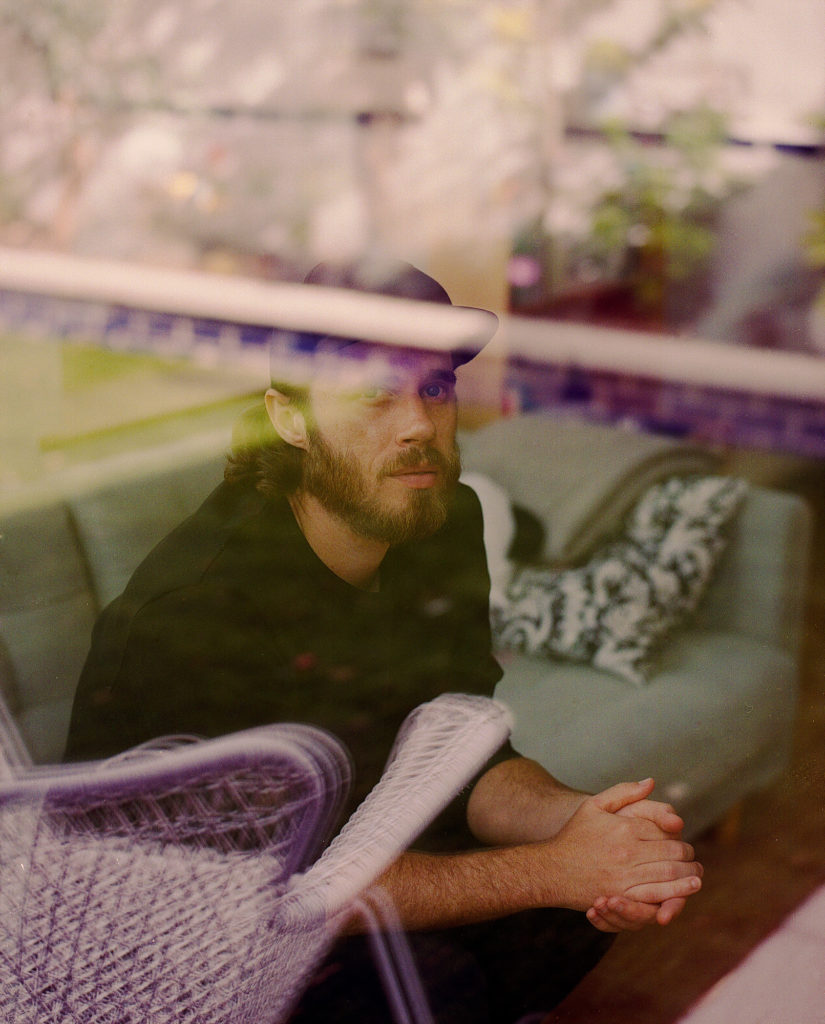
I wanted to be a human being and a rounded personality. I don’t want to be this driven engine that’s only focused on the studio.
James Vincent McMorrow
Following this topsy-turvy period of self-exploration, James appears more assured in his music than ever before. Deconstructing his growth he talks confidently, “I think the music is better, as a simple first answer.”
However, James confesses that it was internal struggles that often previously held him back.
“I think anyone that knows me knows that the greatest hindrance that I’ve ever had on my career is that I’m quite belligerent. I’m also not very outwardly facing. I don’t do a lot of interviews I don’t talk to a lot of people historically.”
In truth, I was nervous about interviewing James. Not because he was unpleasant or scary (he isn’t) more because we were introduced through an interaction that had the potential for conflict. Even with the best intentions, it can be hard to navigate the waters of the internet. Likewise, James acknowledges that he has struggled to craft a public image that accurately reflects his approach as an artist, with early and inaccurate perceptions of him still pervasive online.
“The impetus for this conversation was really interesting. Like when someone posted up about the Kenny Beats song and talked about the left turn the song had made. I don’t look at that stuff and get angry”, he tells me.
“I felt like I wanted to comment on this not from a belligerent asshole place but from a ‘let’s talk’ because that is a thing that happens.”
“If anyone has been paying attention to my career they know the things that I’ve done but if you haven’t been paying attention then these things look like left turns. Because I’m not jumping up in the corner saying ‘look at the people I’ve worked with, look at the things I’ve done’ it comes across opaque to people. I’m trying to get better at that but it’s just not something I’m well built for.”

One such example of a high profile collaboration is James’ work with Drake. He linked up with Canadian producer and songwriter Nineteen85 who produced ‘One Dance‘, ‘Just Hold On We’re Going Home‘ and ‘Hotling Bling‘ for the Toronto spitter. It was through him, that James’ vocals ended up on ‘Hype‘ on the Canadian superstar’s album Views.
More recently, James curated the line-up for ‘Out the Gaff‘. Linking up with some of Ireland’s most forward-facing artists James lent his production skills to a triumphant cut. It sees rappers God Knows, Denise Chaila and MuRli trade words with Choice Prize-nominated singer Sorcha Richardson. Further highlighting James’ ability to orchestrate a plethora of sounds into a coherent and modern-sounding anthem.
I’m not jumping up in the corner saying ‘look at the people I’ve worked with, look at the things I’ve done’
James Vincent McMorrow
However, despite his recent work having more in common with hip hop than folk, James appears unable to shake the linear descriptions. The Dublin native agrees that the idea of being “genre-bending” or adventurous is not often reserved for artists that began with just themselves and a guitar.
“Yeah, I think perception versus reality are very malleable things in the modern age. What you say you are is what you are. We live in this post-truthy era and it ties into what I’ve said before. I’ve never been that interested in trying to find the most basic iteration of myself to sell to the world. Because I like nuance and the world isn’t super nuanced, I think it comes across hard to define for people.”
“I certainly put my hand up and say that in the beginning, I was just so fucking happy that people wanted to….” James says before pausing, almost to signpost his impending vulnerability. “People don’t know, but for a year I put that album out and nobody gave a shit. So like when it did start to happen I was just so excited. I wasn’t going to question anybody, I certainly wasn’t going to turn round in an interview when someone called me a folk singer and be like ‘hmm I don’t think that’s correct’. I was just grateful that they cared at all.”


I certainly wasn’t going to turn round in an interview when someone called me a folk singer and be like ‘hmm I don’t think that’s correct’. I was just grateful that they cared at all.
James Vincent McMorrow


Acknowledging that it would have been counterproductive to challenge the categorisations and glowing assessments of his sound, James admits he went with the flow. It resulted in a monolithic identity being defined, one that swiftly moved out of his control.
“Once people have a picture formed of you it’s very hard to adjust that picture especially when you are not someone inclined to that type of conversation. It was a tough one for me, I always hoped the music would do the talking for me and it never happened.”
“It was a tough hang because people wanted me to jump up and down a bit more and take a bit more credit. I didn’t come from as interesting a place as say, James Blake. He’s a good contemporary counterpoint because we both put out our records at the same time and he came from this really interesting dubby world and then he merged into a more traditional singer-songwriter ethos. So to go that way is interesting to a lot of people. I went the other way I started in quite a stock place and then emerged into a more interesting thing.”
“It’s a funny one, if you pay attention you get it if you don’t you don’t.”

Once people have a picture formed of you it’s very hard to adjust that picture especially when you are not someone inclined to that type of conversation.
James Vincent McMorrow
As we talk, it’s clear that James’ intention wasn’t to set the record straight it was to talk honestly and to give context to his new music. For him, seeing how others perceive him doesn’t bother him like it used to.
“It helps me understand that I am still seen as that and there are parts of me that are that and I want to embrace those parts and not fucking reject them or get annoyed when they talk about that. They’re part of me, it’s a tapestry, isn’t it?”
Though shades of his minimalist approach to creating songs can be heard in the new single with Kenny Beats, there’s a simplicity and vibrancy that is reminiscent of The Neptunes. It feels like a deliberate step in an exciting new direction.
“When I made the third album I worked with 85 (Nineteen85) a lot and 85 was a big believer in cutting a lot of the bullshit out of my records.”
“Like I go into the studio and I’m obsessed with the studio as a piece of equipment. He would come in and mute stuff off and be ‘like who cares? No one gives a shit how many layers of synthesisers and drums you have. If you find one good drum use it’. So that was a revelatory thing for me and I’ve carried that with me into the new album.”


The first single from that album ‘I Should Go’ features Kenny Beats and on first impressions, there isn’t a huge amount in common between James Vincent McMorrow and the American producer. However, on reflection, it’s clear the internet was quick to box them both into a defined space. Kenny Beats’ producer tag has become synonymous with trunk-rattling 808s and hip hop collaborations, but he too has spoken about wanting to shake that perception.
“Kenny is cut from the same cloth. We became very close very quickly because we approach music the same way. You know he is making Idles records? He’s making Trash Talk records… he’s making incredible stuff. But people still want him to be the 808s guy. We bonded over… not a ‘The world doesn’t understand us’ [Laughs] but it was just we understand each other.”
A big Kenny Beats fan myself, I ask if he was going to be featuring on the cult favourite ‘The Cave’ freestyle series soon.
Laughing James leans back into his chair and shakes his head.
“I love the cave. I was like ‘you gotta let me do it’ but I don’t think he took me seriously because I was quite jokey about it [laughs]. My first window into Kenny was the Vince Staples’ records. My understanding of Kenny build on the perception of him. So I was building up this idea of him in my mind and thinking this guy will never want to work with me. My default setting is ‘why would Kenny Beats want to work with me?’ Then he reached out after he heard the song from my album which someone played him in a meeting.”
“The whole time I was like how am I going to work with Kenny Beats the 808s guy? I love an 808, a lot of my records are built of them like I just had this binary idea him and I fucking hated that. I realised that I was doing the thing you get annoyed when other people do to you.”
As it turned out, Kenny’s approach surprised James and their subsequent record was a groove-laden piece of pop magic ‘I Should Go‘. While James has arguably suffered from predetermined ideas of what his music is, his friendship with Kenny Beats stood to show he still had to be mindful of his judgements.
This lesson inevitably informed his album and as he fixes the framing of the front camera James Vincent McMorrow tells me he isn’t being restricted by expectations.

“It’s chaos, the album is chaos and it’s intentional,” he says.
“I used to look back and try and find symmetry in records because again I was a believer in if you paint a picture for people they’ll understand it. My career has suggested otherwise. People understand parts of it, I understand parts of people’s careers, but I don’t understand all of it. So I’d rather make records that suit the way I approach the world.”
“The connection is me, I wrote all these songs all these lyrics are mine, these melodies are mine.”
“This is just me. I’m not questioning it I’m not judging it just embracing it because otherwise, I’d be a hypocrite. I can’t keep talking to people about how the world contains multitudes and I contain multitudes and I want to do what I want to do and then keep course-correcting myself in the studio to try and fit some weird retroactive picture of what I think the world would want from someone like me. I either believe in it or I don’t.”
“This it the first album where I actually do believe in the bones of what I’ve made from start to finish even though it is absolute chaos.”
As he rubs his hands together and turns the heating on in his car our conversation draws to a close. It would have been impossible to communicate any of those ideas with tweets or emojis so I’m glad we got the chance to talk.
There’s more to James Vincent McMorrow than meets the eye. If you pay attention you’ll get it. If you don’t you won’t.
“I like talking to people, I just don’t really do very often.”



